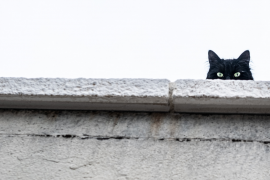SOFT MUSIC AND THE SOUNDS OF WHISKING AND POURING PROVIDE THE GENTLE TITLE SEQUENCE OF THE GREAT BRITISH BAKE OFF. The European classic has captivated audiences at home and across the pond for many seasons, through multiple judges, hosts, and broadcast contracts. The current form is found on Netflix, making its addictive seasons available all at once. And for audiences in Britain and around the world, it provides aspirational recipes and—as the name suggests—one specific version of what it means to be British.
The Great British Bake Off is more than just a favorite among binge-watchers and aspiring home cooks. It stands as an examination of a prescribed “British” tradition—cakes, tea and bunting with Union Jacks on it, in a tent to keep out of the eternally foul weather with a few deadpan cohosts.
It also provides a poignant lens on both the far reaches of colonialism and the rapidly evolving norms of our modern day, for the people who now resonate with that prescribed British tradition can be Muslim women wearing hijab, like Nadiya Hussain, the 2015 winner of the show. Hussain’s Bengali roots felt British presence as a colonizer as recently as two generations ago. Contestants can be immigrants, like Rahul Mandal, the engineering researcher and 2018 winner of the show. For this many different people to know what a Victoria sandwich is and to want to bake it is both what has brought Britain to its present xenophobic political turmoil and is also potentially the country’s greatest glimmer of light going forward.
If race is an important point to consider in the show’s makeup, so too is gender. Baking is a “domestic” task, one that has been relegated to women for centuries. In the tent, bakers are all gripped with the same level of fear approaching judging. Men are just as concerned about their icing and their crumb. As trivial as it may be, in the tent, there is a performed equality. While it is gratifying for a modern feminist to see a male engineer panic over a perfectly-rolled Swiss roll, and treat those traditionally “domestic” tasks as the most important part of his week or year, it is equally important to see female-identifying people being celebrated for proficiency in those same tasks. And as Britain’s history of imperialism gained a lot of its strength from prescribing gender roles, a part of the healing process must be finding creative ways to dismantle them. Perhaps assigning all of this to a television program about cakes and pies is over-reaching, but perhaps the work that it does in the subconscious of the viewer is valuable all on its own.
The counter-argument to this is found in the critics of the show who dismiss it as a waste of time for its emphasis on traditional recipes or its emphasis on the adherence to an arbitrary technical standard. Isn’t identifying a canon of staple British recipes reinforcing a dangerously narrow definition of nationhood? There is some truth to this. But perhaps both can be true. Perhaps for some viewers, the largest takeaway will be that they are not truly “British enough” if they are not yet masters of, or even familiar with, a specific set of foods that for some Brits make up the deepest recesses of their nostalgia. But it seems that for a larger group of the show’s religious following, the program is evidence of progress within the country. Contestants are encouraged to add their own spin on tried-and-true recipes. Nadiya Hussain won the show by frequently infusing the Bengali flavors of her childhood into the formerly straight-laced British staples. So while there is danger in identifying a canon, it is also the only way to flout tradition.
Watching a show so comically-steeped in British stereotypes, where bakers drink a cup of tea while waiting for their cakes to be ready, in this political moment adds a layer to the seemingly-one-dimensional program. For American audiences especially the Brexit vote highlights, for many, how little they understand about the European Union in the first place. The debates leading up to and following Brexit have reminded many of how fresh the wounds of imperialism still are. Current political pundits seem to echo sentiments from hundreds of years ago. There are vocal populations that speak out against the bigotry some assume is tied to the Brexit vote, but on the whole, Britain as an entity feels foreign in these days, as we watch it struggle with political turmoil that mirrors our own. There is some comfort in seeing a purposely-diverse cross-section of their population come together in a tent to compete. As Americans and Brits are reckoning with their own national identities, a reality that seems to exist in a vacuum, an ethereal tent where the only thing that matters is cake, is a necessary release from the political sphere. It is an escape as well as a lens to unpack politics, all at once. It is layered like a cake.
In this way, the darker chapters of the former empire’s history as well as true hope for its future can be found, intertwined, in the name of cake in The Great British Bake Off. And though there are many more legal and economic hurdles to be crossed as the country reckons with leaving the European Union, there may be some hope left in the days of Brexit. And that hope might come from its bakers and the die-hard television fans who support them.
CAROLINE COOK is a student and storyteller. She writes to make sense of a world she finds quite confusing and often funny, and has covered topics like women in science and architecture in Italy, as well as a series of children’s books based on scientific research. She can often be found writing furiously at a keyboard at a volume much better suited for privacy than for a silent library, and is not nearly as embarrassed about that fact as she should be.
Like what you’re reading?
Get new stories or poetry sent to your inbox. Drop your email below to start >>>
OR grab a print issue
Stories, poems and essays in a beautifully designed magazine you can hold in your hands.
GO TO ISSUESNEW book release
I’ll Tell You a Love Story by Couri Johnson. Order the book of which Tim Jeffries said, “Surprising in their originality, filled with broken wisdom, and with a refreshing use of language and imagery, these are stories to savour and mull over one at a time but which add up to a satisfying whole.”
GET THE BOOK



